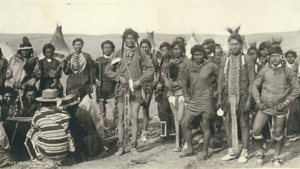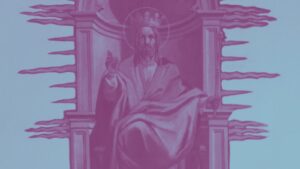This Bible study is originally posted on Faith+Lead. Faith+Lead provides this Bible study to be used by individuals or for group reflection on the theme.
As we consider our vocations, paid jobs are only part of people’s contribution to this world. Even if we work a 50-hour week, that leaves 118 hours to nurture relationships, connect with our local and global community, and explore the ways God calls us to impact creationCreation, in biblical terms, is the universe as we know or perceive it. Genesis says that in the beginning God created the heavens and the earth. In the book of Revelation (which speaks of end times) the author declares that God created all things and... More. We live out our faith in the ways we interact with the people and the world around us, which includes our hours spent in and outside of our paid jobs.
The church historically defined vocation as the work of monks, nuns and priests, who left their daily lives behind and dedicated themselves wholly to serving God. Yet our callings from God also include our daily lives, which include caring for others, sharing our gifts, and fulfilling many roles that shift and change over the years. Even when our lives seem small (such as in early parenthood, when our views feel limited to the walls of our homes), we can be confident we’re doing God’s holyHoly is a term that originally meant set apart for the worship or service of God. While the term may refer to people, objects, time, or places, holiness in Judaism and Christianity primarily denotes the realm of the divine More work whenever we love our neighbor.
Jesus’ parables are succinct stories meant to illustrate a point about the kingdom of GodThe kingdom (reign) of God is a central theme of Jesus' teaching and parables. According to Jesus this reign of God is a present reality and at the same time is yet to come. When Christians pray the Lord's Prayer, they ask that God's kingdom... More and his ministry. They are examples of Jesus’ masterful teaching ability; instead of giving clear-cut answers about faith, JesusJesus is the Messiah whose life, death, and resurrection are God's saving act for humanity. More uses familiar imagery in ways that continue to puzzle us and capture our imagination. Many of Jesus’ parables encourage continual reflection and challenge us throughout our lives. I’d like to explore how two parables in the Gospel of MatthewA tax collector who became one of Jesus' 12 disciples. More surprise us and expand our definition of important work.
Read Matthew 13:31-32.
- What stands out to you in this parableA parable is a brief story with a setting, an action, and a result. A prominent aspect of Jesus' teaching was telling parables to illustrate something about the kingdom, or reign, of God. More?
- Jesus’ parables often make one point about the kingdom of heaven and his ministry (rather than summarizing the entirety of his mission and ministry). What might that point be in this parable?
- What parts of your life feel like a mustard seed?
- Has this changed throughout your life?
- How does God view these parts of your life?
- How have your small acts contributed to the life and vitality of other people and God’s creation? Has someone else’s small act given you life?
We’re also only beginning to recognize the amount of unpaid labor that props up our society, the vast majority of it done by women. The church has the opportunity to acknowledge this labor and to name it as a crucial part of our community. We all benefit from unpaid labor, and we need to wrestle with the ways we need to value this work. In the following parable, Jesus lifts up the domestic labor of a woman.
Read Matthew 13:33.
- What stands out to you in this parable? Compare and contrast it with the previous parable.
- Sometimes the parables say to us, “God is not like you thought.” How might this parable, which depicts a woman doing a domestic task as an agent of God’s kingdom, challenge our assumptions about God?
- How does this parable challenge our society’s idea of who/what is important and powerful?
- Three measures of flour is roughly equal to 144 cups, enough to make 52 loaves of bread. How does this absurd amount of flour help illustrate the point of the parable?
- The yeast, like the mustard seed, is small and hidden yet has a powerful impact. Who in your life has worked behind the scenes, in hidden ways, to impact those around them? How do they inspire you?
What steps can we take as a society to value all labor, not just paid labor? How do we honor the ways all work, even seemingly less important work, benefits our communities?





